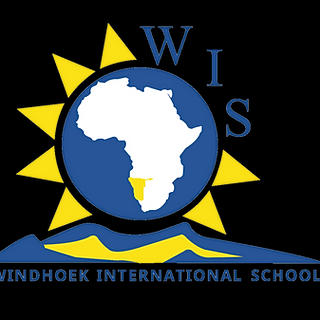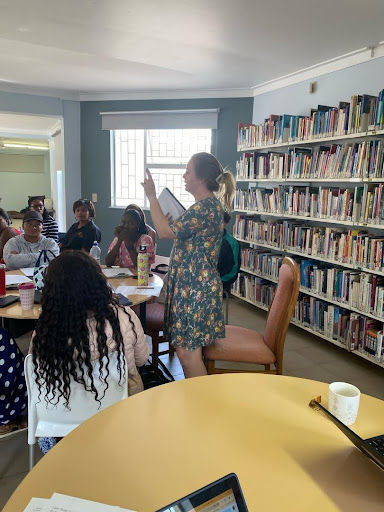How the IB’s PYP-MYP-DP Continuum prepares students for success
- Windhoek International School
- May 26, 2023
- 4 min read
Dear Community,
This past week has been a great celebration of learning - especially with the PYP Exhibition taking place on Tuesday. Please be sure to read Ms. Marcelle’s article about this capstone learning experience for our Grade 5s. The Grade 9 students also finished their examinations this week, and our IGCSE students are nearly there! Grade 1-8 MAP testing will begin next week, so if you want more information about that then please read emails from your teachers and this letter, if you haven’t yet done so.
Windhoek International School is in the process of transitioning to the IB Middle Years Programme in Grades 6 through 10. We have always valued the ability to offer the IGCSE in Grades 9 and 10, and we will ensure that our current Grade 9 students will be fully supported as the final cohort to undertake the IGCSE at the end of Grade 10. Next year’s Grade 9 will be the first cohort to undertake the MYP eAssessment rather than the IGCSE assessment at the end of Grade 10. I wanted to share some research which helps to explain why we are confident in our decision to switch to the IB MYP:
Research shows that the MYP is equivalent in rigour to the GCSE
A comparative analysis found that the MYP and GCSE assessments are comparable in terms of MYP Integrated Sciences and GCSE Combined Sciences - which encapsulate Biology, Chemistry, and Physics.
The MYP eAssessment certificate is increasingly viewed by universities around the world to be an equal credential to IGCSE courses.
The MYP Personal Project is an 18-month undertaking which prepares students in Grades 9 and 10 for an era which will require entrepreneurship and proficiency in the use of artificial intelligence.
A recent study of educational outcomes across developed countries found that MYP students scored significantly higher than non-MYP students on the OECD’s ISA standardised testing.
A comparison study of schools offering the DP on top of either the IGCSE or MYP, indicates that students who had undertaken the MYP achieved DP results that were statistically significantly better than their IGCSE peers. This was attributed to MYP students’ higher critical thinking skills and writing skills. However, this study also shows that when compared with their IGCSE peers, MYP students on average have less exam-taking experience and less Grades 9 and 10 Maths/Science content knowledge than their IGCSE peers. We are addressing this potential content knowledge gap by utilising separated Biology-Chemistry-Physics textbooks across MYP4 and MYP5 curriculum, so that our MYP Integrated Science course will prepare students for success in the separate DP Biology, DP Chemistry, and DP Physics courses we offer at WIS in Grades 11 and 12. In a similar vein, the MYP Mathematics curriculum in Grades 9 and 10 is planned backwards from what students must know and be able to do in the IB Mathematics courses we offer in Grades 11 and 12.
The graphic below outlines how the two types of MYP assessment - on-screen examinations and ePortfolios - are divided across the MYP’s various subject groups. We will likely be offering the MYP Arts as the ePortfolio option, but not the MYP Design course (until we have a new Design Classroom built). The Physical and Health Education class will be offered as a non-MYP subject.

An MYP Certificate will be awarded to candidates who have achieved the following:
gained a grade total of at least 28 points from six subject groups, the interdisciplinary on-screen examination and the Personal Project combined, out of a possible maximum of 56
gained at least a grade 3 for the Personal Project
gained at least a grade 3 in at least one subject from each subject group
gained at least a grade 3 for the interdisciplinary on-screen examination
completed the school’s requirement for community service
In conclusion, the curriculum framework a school uses is less important than the quality of the teaching and the support that students receive at home and from their peers. WIS teachers are world-class educators, and we are focused on our WIS Principle of Excellence, and how it interacts with the WIS Principle of Creativity so effectively within the IB curriculum framework. I have copied these two principles’ texts and questions below.
The CREATIVITY Principle:
We are naturally curious and playful. We can never predict which experience will bring about a life-long passion, so we encourage learners to explore and to try new things. We learn through a lifelong cycle of inquiry. We know that the world’s problems will not be solved at the same level they were created, so we must make space for imagination, divergent thinking, and exploration.
In Practice:
When we teach, we are attuned to student curiosity. We offer elements of voice and choice within our curriculum and methods of assessment. We take advantage of chance encounters and the unexpected, and we value having more questions than answers. We explore the limits and assumptions of academic disciplines and theories.
Questions:
Does this action facilitate wonder and creativity?
Do I take time to consider not just what is, but also what could be?
Do I take time to express myself creatively through sport, play, service to others, and the arts?
Do I pause to appreciate the unexpected?
Am I open to exploration and adventure?
The EXCELLENCE Principle:
We believe that learners develop the dispositions of excellence when they are surrounded by a community which models, sets, and keeps high expectations. We believe that all people already possess within themselves all the ability and compassion that is necessary to make a positive difference in our world. Excellence is a way of being that is won by training, revision, and habituation. It is our collective and individual responsibility to model these characteristics for others.
In Practice:
We expect one another to produce timely and accomplished work. We expect that this will take multiple drafts. In a partnership between the school and the home, we help learners try again whenever an effort falls short of the mark. We place student work within authentic and meaningful contexts, and we organise learning celebrations for the good work that students produce. We set high expectations for ourselves. We inspire others to be the best they can be.
Questions:
Am I putting in my best effort towards excellence?
Am I setting clear and measurable goals for myself?
Do I approach everything I do with a growth mindset?
Do I continuously revise and refine my work to be the very best I can be?
Do I lead by example?
Is my feedback timely, specific, actionable, and respectful?
Thanks and have a lovely long weekend,
Ethan
Director





Comments